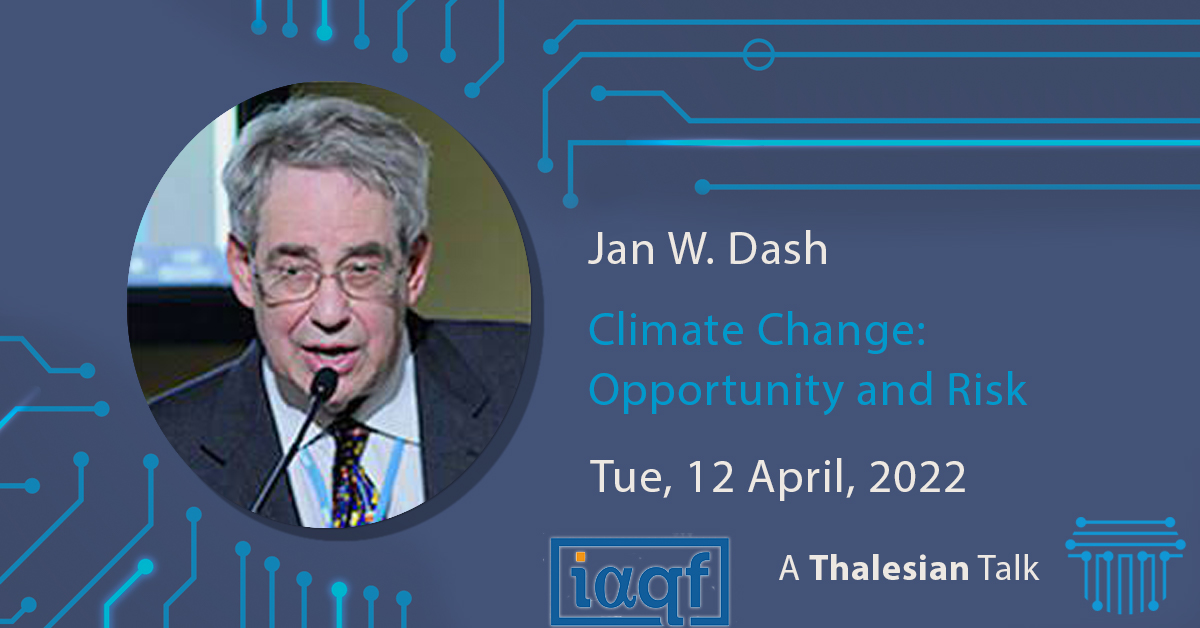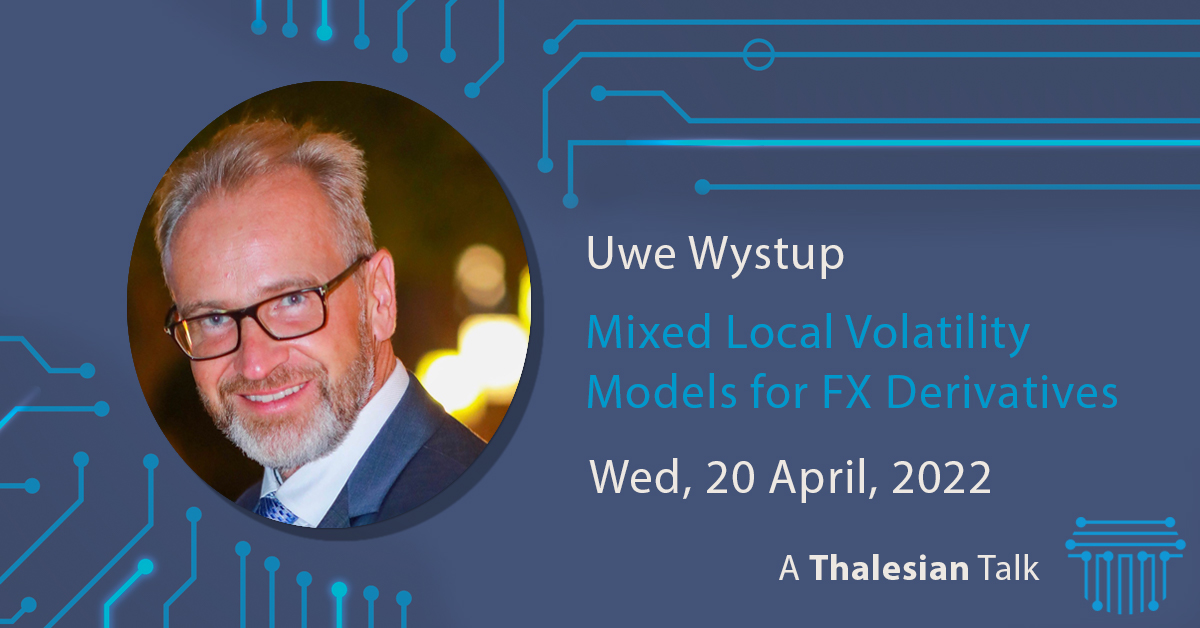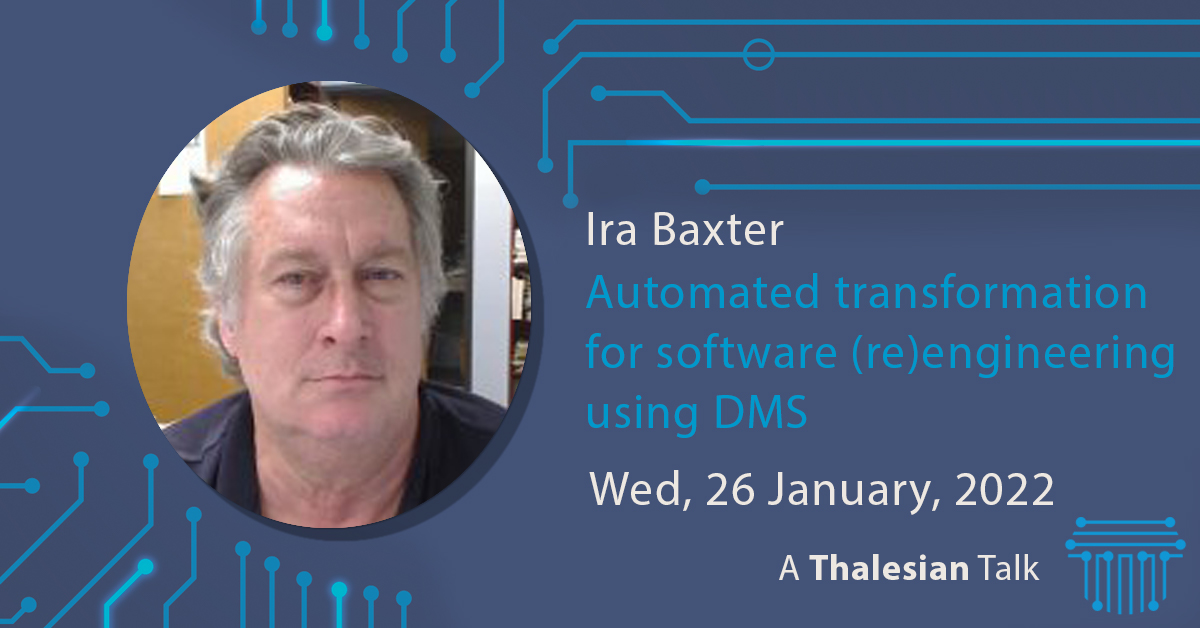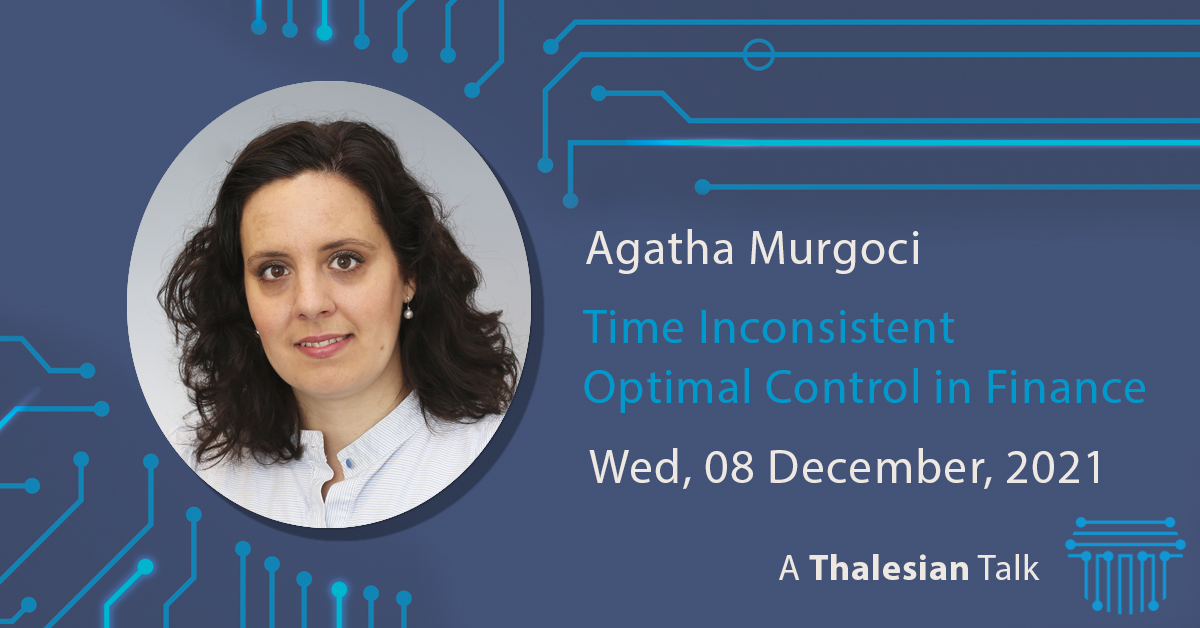This talk is based on the book Time-Inconsistent Control Theory with Finance Applications (https://www.springer.com/gp/book/9783030818425)
Whenever we need to make an optimal decision in a dynamic context, the standard toolkit consists of the Bellman optimality principle and dynamic programming. However, the toolkit fails in a number of important economic situations. If we have an explicit dependence on the initial point of our problem, either for the state variable or for the exact time, the Bellman optimality principle fails. Other famous examples of time inconsistency include mean-variance portfolio choice and prospect theory in a dynamic context. For such models, the very concept of optimality becomes problematic, as the decision maker’s preferences change over time in a temporally inconsistent way. Famous examples of time inconsistency include dynamic mean-variance portfolio choice, any relaxation of the usual exponential discounting framework and prospect theory in a dynamic context. For such models, the very concept of optimality becomes problematic, as the decision maker’s preferences change over time in a temporally inconsistent way. In this talk, a time-inconsistent problem is viewed as a non-cooperative game between the agent’s current and future selves, with the objective of finding intrapersonal equilibria in the game-theoretic sense. Specific examples will be solved and explained.




